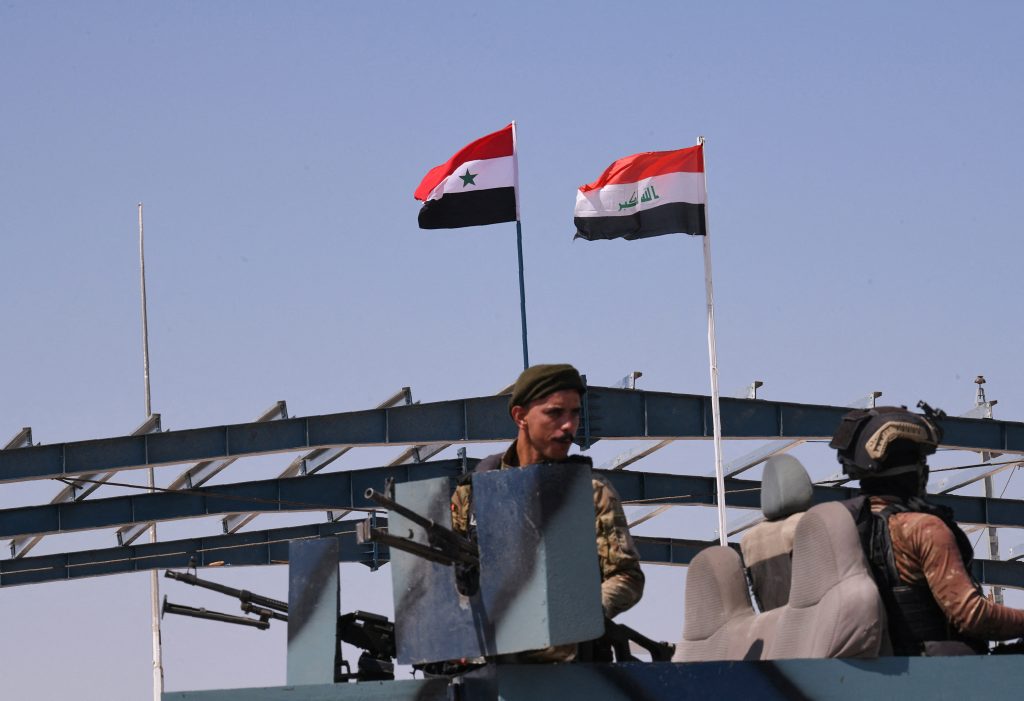Even before the recent attack and subsequent surrender of Daesh fighters in Syria’s Hasakah province, the Syrian Democratic Forces (SDF) and Iraqi Security Forces (ISF) had bolstered border security through investments in new equipment and increased cooperation. Fleeing Daesh fighters looking to escape the SDF now face a range of sophisticated border controls including infrared cameras for spotting targets at night, hundreds of fortified watchtowers, and a 3m wide and deep trench which runs for hundreds of kilometres along the border. Combined with regular ISF patrols across the area immediately behind the border, it is with some justification that Maj. Gen. Yehia Rasool, Spokesperson for the Iraqi Commander-in-Chief, commented to the Iraqi News Agency (INA) that “The security forces are ready to confront any attempt by Daesh remnants to infiltrate Iraqi territory.”

Securing the 610km long border, with its vast deserts, densely populated cities, jutting mountain ranges, swampland and two major rivers, has always been a challenge. However, the ISF, with the help of its Coalition partners, are now much better equipped to secure this difficult terrain using its own highly-motivated personnel supported by modern technology. “Infrared cameras and […] drones will operate 24 hours a day to ensure the security of the border, alongside the Iraqi Air Force, which will provide reconnaissance,” said Brig. Gen. Atheer Al-Rubaei, Commander of the 20th Division of the Iraqi Army. To use the technology to its maximum potential, the ISF has continued to work closely with the Global Coalition, which has played a “key role in training regiments” stationed along the border, said Lt. Gen. Hamid Abdullah, head of the Iraqi Border Guard.
The border has always been porous, with Daesh and other criminal elements seeking to use its length and challenging terrain for their own nefarious means. Daesh illegally trafficks weapons and people as well as smuggling drugs: an illicit trade which in 2019 was estimated to earn Daesh approximately $100,000 USD per day. However, the recent upgrades and improvements in security have resulted in Border Guards being increasingly able to intercept and crack down on such illegal activities and capture those responsible, such as the 24 terrorists who were intercepted and arrested in Nineveh on November 2021 through the use of new infrared cameras.

Daesh was previously able to exploit gaps between the Kurdistan Region of Iraq and its neighbouring federal governorates. Now, thanks to improved security planning and coordination between the SDF, Peshmerga and the ISF, those gaps have been closed, disrupting a number of Daesh sleeper cells and other criminal elements who now no longer enjoy the freedom of movement they once did.
Securing the border was critical in the territorial defeat of Daesh in 2017: now with the improved security equipment and defensive measures, the ISF, with support from its Global Coalition partners, is better equipped and resourced than ever before to secure the Iraq’s borders and so provide a safe and secure environment for its peoples. During a recent visit to the Iraqi-Syrian borders, Prime Minister Mustafa Al-Kadhimi issued a warning to Daesh: “Do not try us. You [Daesh] have tried many times and failed, and you will try much more and you will fail, again.”

